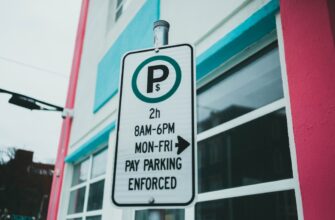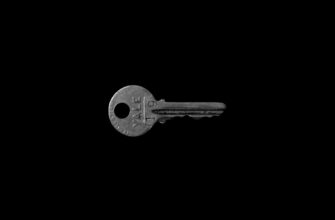- Understanding Airdrops and Tax Rules in Canada
- Is Airdrop Income Taxable in Canada?
- How to Calculate Fair Market Value for Airdrops
- Step-by-Step Guide to Reporting on Your Tax Return
- Handling Subsequent Sales or Trades
- Essential Record-Keeping Practices
- Frequently Asked Questions (FAQ)
- Q: Are “hard fork” airdrops like Bitcoin Cash taxable?
- Q: What if an airdrop has no market value at receipt?
- Q: Do I pay tax if I receive an airdrop in a non-custodial wallet?
- Q: Can I deduct transaction fees for claiming airdrops?
- Q: What if I missed reporting past airdrops?
- Staying Compliant and Avoiding Penalties
Understanding Airdrops and Tax Rules in Canada
Cryptocurrency airdrops—free distributions of tokens to wallet addresses—are increasingly common in the crypto ecosystem. In Canada, the Canada Revenue Agency (CRA) treats airdrops as taxable income at fair market value when received. Whether you’re a crypto enthusiast or a casual participant, failing to report this income can lead to penalties. This guide breaks down exactly how to comply with Canadian tax laws for airdrop earnings.
Is Airdrop Income Taxable in Canada?
Yes. The CRA classifies airdrops as “other income” under Section 9 of the Income Tax Act if:
- You receive tokens without providing goods/services (e.g., promotional airdrops)
- The tokens have determinable market value at the time of receipt
- Exceptions apply only if tokens are valueless or received as part of a business (treated as business income)
Key Takeaway: Most airdrops are taxable upon receipt, even if you don’t sell them immediately.
How to Calculate Fair Market Value for Airdrops
You must convert the token’s value to Canadian dollars (CAD) at the time of receipt. Follow these steps:
- Identify the receipt date: Note the exact date tokens appeared in your wallet.
- Find the token’s price: Use reliable sources like CoinMarketCap, CoinGecko, or exchange data (e.g., Binance, Kraken).
- Convert to CAD: Multiply token quantity by its USD price, then convert USD to CAD using the Bank of Canada’s daily exchange rate for that date.
Example: Receiving 100 XYZ tokens on Jan 15, 2023, when 1 XYZ = $0.50 USD and 1 USD = 1.35 CAD:
Value = 100 × $0.50 × 1.35 = $67.50 CAD taxable income.
Step-by-Step Guide to Reporting on Your Tax Return
Report airdrop income when filing your annual T1 return:
- Gather records: Transaction history, wallet addresses, and valuation calculations.
- Calculate total income: Sum the CAD value of all airdrops received in the tax year.
- Report as “Other Income”: Enter the amount on Line 13000 of your T1 form.
- Disclose details: Attach a note specifying “Cryptocurrency Airdrop Income” with your calculation summary.
Handling Subsequent Sales or Trades
If you later sell or trade airdropped tokens:
- Capital gains tax applies: The difference between the sale price and original value (already taxed as income) is subject to capital gains.
- Report on Schedule 3: 50% of the gain is taxable. Losses can offset other capital gains.
Example: Selling XYZ tokens for $100 CAD after reporting $67.50 as income:
Capital gain = $100 – $67.50 = $32.50 → $16.25 taxable.
Essential Record-Keeping Practices
Maintain records for 6 years to support your filings:
- Dates and amounts of all airdrops
- Source of valuation (screenshots, exchange data)
- Wallet addresses and blockchain transaction IDs
- Calculations showing CAD conversions
Frequently Asked Questions (FAQ)
Q: Are “hard fork” airdrops like Bitcoin Cash taxable?
A: Yes—the CRA treats them identically to standard airdrops. Value them when you gain control of the new tokens.
Q: What if an airdrop has no market value at receipt?
A: If tokens are truly illiquid or worthless, you may delay reporting until they gain market value. Document this carefully.
Q: Do I pay tax if I receive an airdrop in a non-custodial wallet?
A: Yes. Ownership (not wallet type) determines tax liability. Even “unclaimed” tokens become taxable once accessible.
Q: Can I deduct transaction fees for claiming airdrops?
A: Generally no, unless you’re running a crypto business. Personal airdrop expenses aren’t deductible against this income.
Q: What if I missed reporting past airdrops?
A: File a T1 Adjustment Request immediately. Voluntary disclosures may reduce penalties for unreported income.
Staying Compliant and Avoiding Penalties
With crypto audits rising, accurate airdrop reporting is critical. Use crypto tax software (e.g., Koinly, CoinTracker) to automate valuations and consult a CPA experienced in digital assets. By treating airdrops as ordinary income and maintaining meticulous records, you’ll avoid CRA disputes and keep your crypto journey stress-free.








